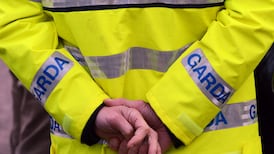The low rate of sexual crimes being detected, or solved, is of particular concern and a review was being carried out to establish why so many of the offences were going unsolved, the Policing Authority has said.
The Garda Síochána oversight agency added that the Garda force had responded to the Covid-19 pandemic with great professionalism and agility.
A new “tone” in policing was in evidence and there had been a welcome focus on vulnerable victims, including in the area of domestic violence.
However, in the longer term, there remained significant challenges to be faced by the Garda, with concern about the force’s record to date in facing those issues. They include the ability of the Garda to offer vital on-the-job training for its members, the level of resourcing available to tackle growing economic crime and cyber-enabled offences, continued delays in analysing electronic devices in the investigation of sex crimes and the Garda’s planned assuming of responsibility from the Office of Public Works (OPW) for managing the force’s buildings.
Future reforms
In its latest report assessing the Garda’s performance during the pandemic, the authority has reviewed all of 2020 and also assessed how well positioned the force was to achieve future reforms envisaged for it.
The authority said “community policing became enlivened” during the pandemic “resulting in a reconnection with the community”, though it added the Garda had continued to have a poor record in measuring its successes and documenting them in published reports.
Overall, the “tone of community policing” during the pandemic had the potential to becoming a lasting legacy and to effectively reset the relationship between the Garda and the public it serves.
“That tone is characterised by an increased level of understanding, respect, empathy and meaningful engagement and this has also been felt and experienced by groups that traditionally would not have enjoyed such a relationship,” the authority said. But it warned there was “also work to be undertaken to retain the tone of policing that emerged during 2020” as some communities were already reporting growing concerns the improved “tone” would not be maintained.
Protective services units
The Policing Authority welcomed the rollout of protective services units, to investigate sexual crimes and other offences involving vulnerable victims, in each Garda division.
It also said Operation Faoiseamh, established to tackle domestic violence during the pandemic, had been transformative. It had “seen domestic abuse firmly framed as a crime deserving of a policing response and sanction, rather than as a private domestic matter”.
“Agencies now make reference to ‘pockets of bad practice’, whereas in the past good practice was at times the exception rather than the rule,” the authority said.
However, “concerns remain” around the strategic approach and operational performance in responding to economic crime and the authority welcomed the plan to expand the Garda National Economic Crime Bureau, which investigates those crimes.
‘Key enablers’
Worryingly, the authority was concerned about progress made with improvements to what it termed “key enablers” of the Garda’s day-to-day performance and its ability to execute long-term reforms. These included human resources, training, information and technology, finance and estate management. These impacted all aspects of the force, from establishing what the demands were on a national police service, the steps that must be taken to meet those demands and to plan training, professional development and setting policing priorities and costing them.
All of these areas required the same “application of senior management attention as the essential daily work of policing in our contemporary society”. Performance in those areas had “done little to alleviate” the Policing Authority’s “concerns” in 2020.










